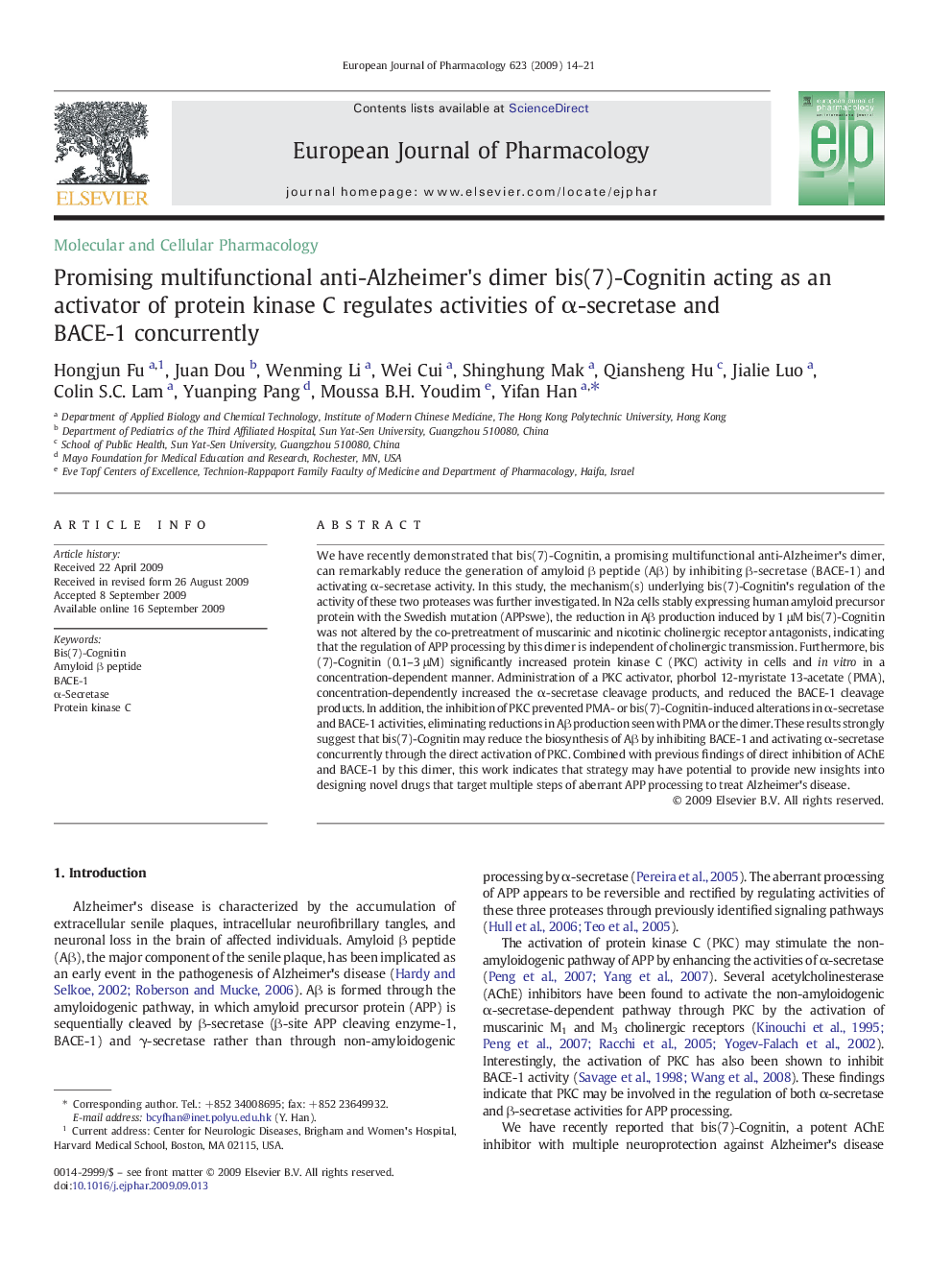| Article ID | Journal | Published Year | Pages | File Type |
|---|---|---|---|---|
| 2533928 | European Journal of Pharmacology | 2009 | 8 Pages |
We have recently demonstrated that bis(7)-Cognitin, a promising multifunctional anti-Alzheimer's dimer, can remarkably reduce the generation of amyloid β peptide (Aβ) by inhibiting β-secretase (BACE-1) and activating α-secretase activity. In this study, the mechanism(s) underlying bis(7)-Cognitin's regulation of the activity of these two proteases was further investigated. In N2a cells stably expressing human amyloid precursor protein with the Swedish mutation (APPswe), the reduction in Aβ production induced by 1 μM bis(7)-Cognitin was not altered by the co-pretreatment of muscarinic and nicotinic cholinergic receptor antagonists, indicating that the regulation of APP processing by this dimer is independent of cholinergic transmission. Furthermore, bis(7)-Cognitin (0.1–3 μM) significantly increased protein kinase C (PKC) activity in cells and in vitro in a concentration-dependent manner. Administration of a PKC activator, phorbol 12-myristate 13-acetate (PMA), concentration-dependently increased the α-secretase cleavage products, and reduced the BACE-1 cleavage products. In addition, the inhibition of PKC prevented PMA- or bis(7)-Cognitin-induced alterations in α-secretase and BACE-1 activities, eliminating reductions in Aβ production seen with PMA or the dimer. These results strongly suggest that bis(7)-Cognitin may reduce the biosynthesis of Aβ by inhibiting BACE-1 and activating α-secretase concurrently through the direct activation of PKC. Combined with previous findings of direct inhibition of AChE and BACE-1 by this dimer, this work indicates that strategy may have potential to provide new insights into designing novel drugs that target multiple steps of aberrant APP processing to treat Alzheimer's disease.
